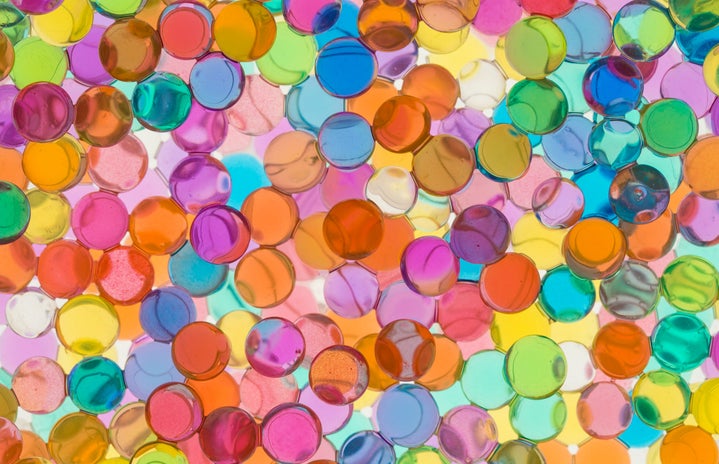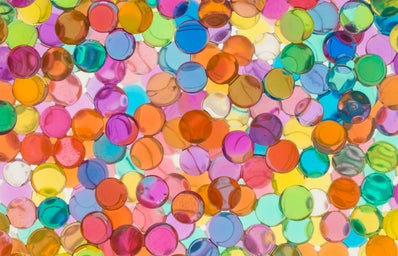In the Youtube video for their poem titled, “This Body” Sugarhouse slam poet Tanesha Nicole (they/them) reads the line, “Fuck your beauty standards,” and the crowd audibly hoots and hollers in approval. But sitting in Watchtower Café on State Street, Nicole is simultaneously laughing and apologizing for interrupting discussion of poetry to eat beef jerky.
Tanesha Nicole grew up in Logan, Utah, a proud Pisces (as the tattoo on their upper arm informs you.) Nicole is a student at Westminster College who ranked 9th out of 96 in 2016’s Women of the World Poetry Slam in Brooklyn, New York.
What would you say is the importance of, or the role of the poet in today’s political climate?
Art is a form of activism and resistance, now it’s time to reach out with an audience or a community. We need more than just love poems and Shakespeare. I’m sure there are some great sonnets, but we need poetry that gets people to talk about issues they might not discuss otherwise. Poetry is about our truths, and right now when our existence is on the line for political reasons, is when we need those truths the most.
What themes or topics are most important to your poetry?
All of my poems typically fall into the realms body, politics and race. In less pronounced but still present ways, my queerness is another major subject. But maybe in a more subtle way, I write about my family a lot.
What is it like to be a poet of color in Utah? What is it like to have a predominantly white audience connect with you?
It is so weird to be a not-male, queer poet of color. The judge or audience feels a “documentary effect”, like for those three minutes they supported my cause. I often wonder if I win [in poetry slams] because I’m black and my white judges feel bad. Like, “I can’t empathize or relate but I can give you a 9.9”, this leads to imposter syndrome, I tend to think I’m not a good poet but I win only because I’m a person of color. Times that I don’t win, but audience members come up and say “hey, I connected with you on that”, I think that’s what means my activism is working.
What is it about slam that enables it to go beyond written poetry or even other art forms?
It’s growing to be one of the most popular forms of media. Because it’s so unique, with few rules, but rules that do a lot. 3 minutes is not a lot of time. As humans, we don’t like to focus for too long, but in three minutes we can communicate the issues that are important to us. The competitive aspect of it is super a western thing, but at the end of the day, it’s not so much the competition between poets as it is also the internal competition.
What is CUPSI? What is the event about or intended for and the importance therein?
CUPSI is the Collegiate Union Poetry Slam Invitational. It is the nationals of the college scene, five days of workshop, poetry, ciphers, bouts, intense networking. It’s where you make some of the best connections. You get to see what work is being produced on a college level across the world as an international competition. Some people switch the I in CUPSI to stand for international rather than invitational.
Tell me about Westminster’s CUPSI team and what works we can expect from them?
The team is comprised of myself, Rhea Page, Shane Robertson, and Kate Wilson. You can expect honest, raw, vulnerable, out of the box work that we are all proud of, on subject matter that may not be easy to talk about. You can see a well-balanced team dynamic of supportive people.
Poetry has a habit of discussing trauma, can you talk on that, and why you think that happens, and the importance of it?
I’m going to give you two answers, both are real, it’s just that one people want to acknowledge less. Trauma comes up a lot because, in slam, the poems are a representation of what the poet knows. It gives us agency, you can empower yourself by writing your version of events, your version of your trauma, and choose how and where and why you’re exploring the events. You go in the space and go “Yeah, for the next three minutes, I’m going to go there and talk about things that statistically, other people in this room have probably experienced. And yeah, there’s a 99% chance I’m going to cry, but I get to choose when, where and why I cry.” It’s a healing role that poetry plays in this sense. The second reason [trauma is discussed so much in slam] is it scores well. Everybody wants to hear your trauma. No one gives a fuck about your love story. That being said, I don’t think it’s the poets fault that they want to indulge in trauma to validate their art. We’ve normalized wanting to watch people hurt rather than be happy. The idea of happy people writing doesn’t make us feel good. You go to a poetry slam and expect to hurt. You don’t go to a slam and expect to laugh until you cry. It often comes down to who’s trauma is the loudest.
Crucial questions: burrito vs. pizza? Nose ring or belly button piercing? Love poem or feminism poem?
Burrito. Nose. Feminism.
If you were to recommend 3 poems to someone who has never seen a slam poem before, which would they be?
That’s hard, I’ll pick one posted by each major slam distributor. Hanif Willis-Abdurraqib’s “Ode to Biggie” and then Sam Rush’s “Self Portrait (Cock)”. And then maybe “War(da)” by Salma Nizam, who was on the U of U’s slam team, YouSpeak, last year.
If you wanted an audience to walk away with one thing, what would it be?
I would want an audience to walk away feeling like they could do slam too. I want them to walk away excited, like “Yo, I can do that too.” I want them to feel like they can share their story, even if they don’t have an audience, even if it’s just with their friends.
March 9th in the Union Theatre, the University of Utah’s slam team, YouSpeak, is hosting a “CUPSI Cup” between themselves, Westminster and two local high school teams in the Union Hall. The slam starts at 8:30, entrance will be $3 and all proceeds go to funding the team.



